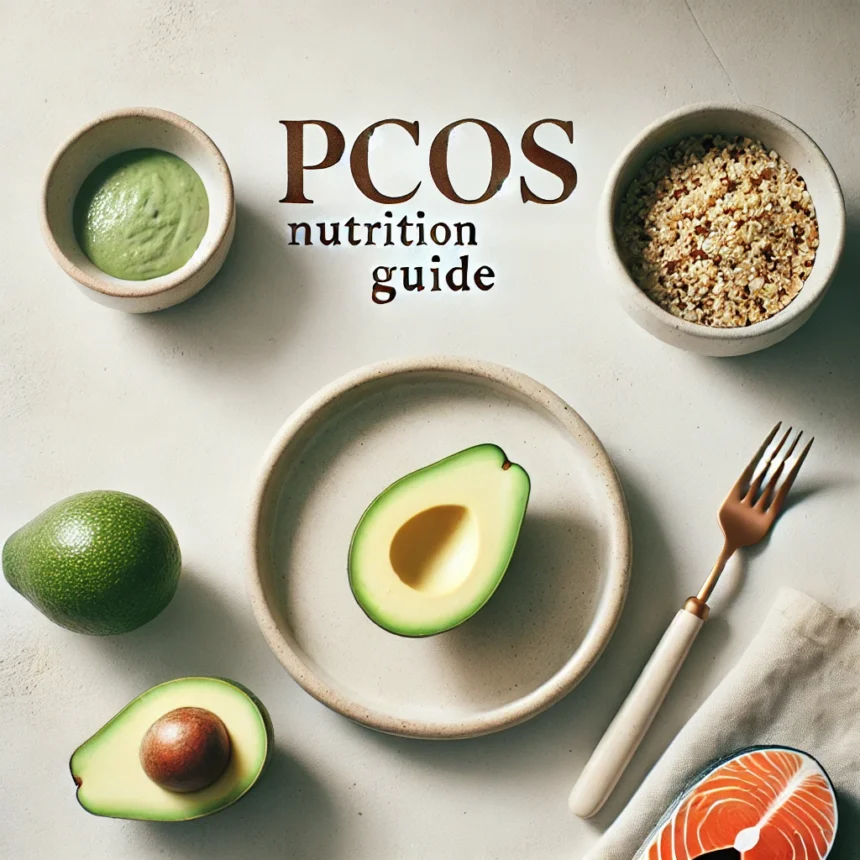Polycystic Ovary Syndrome (PCOS) is a prevalent hormonal condition that affects many women worldwide, causing irregular periods, weight gain, acne, and fertility issues. While there is no treatment for PCOS, good nutrition and lifestyle adjustments can assist to effectively manage symptoms. A well-balanced diet is essential for regulating hormones, enhancing insulin sensitivity, and lowering inflammation, all of which are important variables in controlling PCOS. In this tutorial, we will look at the best foods to consume, what to avoid, and how to develop a long-term diet plan for PCOS treatment.
Understanding PCOS and its Role in Nutrition
PCOS is frequently connected to insulin resistance, which occurs when the body’s cells do not respond effectively to insulin, resulting in excessive blood sugar levels. This can lead to weight gain, higher androgen (male hormone) levels, and problems ovulating. Women with PCOS who follow a nutrient-dense diet can improve their hormonal balance, reduce inflammation, and maintain a healthy weight. Making the appropriate food choices can also help you manage symptoms including hair loss, acne, and exhaustion.
The Best Foods for PCOS Management
1. High-fibre foods; Fibre slows digestion, reducing insulin spikes and maintaining steady blood sugar levels. It also improves gut health and encourages appropriate weight management. Vegetables like broccoli, spinach, and kale, as well as nutritious grains like quinoa and oats, are excellent sources of fibre for PCOS. Legumes like lentils, chickpeas, and black beans are high in fibre, which aids digestion and keeps you fuller for longer.
2. Lean protein sources; such as eggs, chicken, turkey, and fish, provide essential nutrients without causing insulin spikes. Plant-based proteins, such as tofu, tempeh, and legumes, are also great options for those following a vegetarian diet. Incorporating protein into every meal can help maintain muscle mass and prevent overeating.
3. Healthy fats; Not all fats are bad; in fact, good fats are needed for hormone production and inflammation reduction. Avocados, nuts, and seeds (such as flaxseeds and chia seeds) are high in omega-3 fatty acids, which promote hormonal balance. Olive oil and coconut oil, when used in moderation, can help increase insulin sensitivity and alleviate PCOS symptoms.
MUST READ; Healthy Sugar Alternatives: The Top Natural Sweeteners for a Healthier Lifestyle
4. Carbohydrates with low glycaemic index (GI); Carbohydrates with a low glycaemic index gradually release sugar into the circulation, reducing insulin surges. Whole grains such as quinoa, brown rice, and barley are better options than processed carbs such as white rice and white bread. Non-starchy veggies, such as bell peppers, cucumbers, and zucchini, have a low glycaemic index and supply critical vitamins and minerals without raising blood sugar.
5. Anti-inflammatory foods; Chronic inflammation is a prevalent problem in women with PCOS, contributing to weight gain and hormone imbalance. Consuming anti-inflammatory foods such as turmeric, ginger, green tea, and dark leafy greens can help to reduce inflammation and improve overall health. Fatty fish like salmon and sardines are high in omega-3 fatty acids, which help to reduce inflammation and improve metabolic health.
6. Foods that help regulate blood sugar; Maintaining blood sugar levels is critical for managing PCOS symptoms. Magnesium-rich foods, such as almonds, spinach, and pumpkin seeds, can help with blood sugar regulation and insulin sensitivity. Apple cider vinegar has also been demonstrated to reduce blood sugar levels when taken before meals. Furthermore, cinnamon is a potent spice that improves insulin function and can be simply used into smoothies, porridge, or tea.
In conclusion, managing PCOS with right nutrition and lifestyle modifications can greatly improve symptoms and overall health. Women with PCOS can control hormones, stabilize blood sugar levels, and reduce inflammation by eating meals high in fibre, lean proteins, healthy fats, and low in glycaemic index. Avoiding processed foods, sugary drinks, and excessive coffee will help you achieve better hormonal balance.


